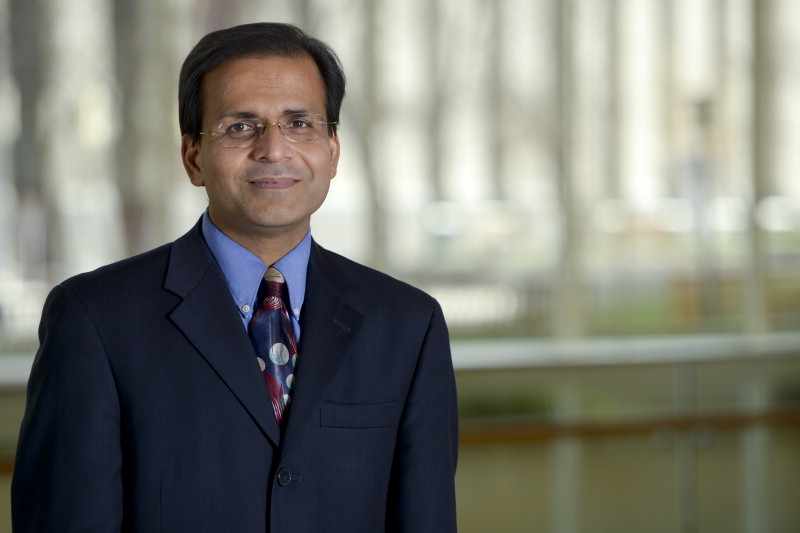-
Featured News
Something to Think About: Being fully alive and present

Dr. Amit Sood says, 'Be willing to improve, and soften your urge to improve others."
Dear friend,
After a full meal, I often find myself in front of the refrigerator, wondering what more I could eat. My one-quart stomach may have no space left, but my mind isn’t satisfied. This is because, even though I ate enough calories, I was not present to experience them. My still-hungry mind doesn’t like the idea of the meal being over. Life is a bit like that.
I am not fully alive when I am not present for my moments. I am not truly present when I am locked in a wandering mind, or when I want the present experience to be something other than it is. When I get busy with what comes next, I bypass what’s happening now. I invest most of my conscious moments in trying to improve a future conscious moment.
With spending the bulk of my days this way, I realize I really didn’t savor my morsels of life. I fear I’ll be forced to leave the table too soon, dissatisfied, unaccomplished, and unwilling to leave.
Why do I do that? Why do I spend most of my moments thinking about another moment? My brain has acquired a hobby of spending time with itself. My brain is tremendously skillful at generating an endless dialogue inside my head. This dialogue is a soup of gossips, imaginations, fears, fantasies, regrets, plans, and so much more. The flavor changes, albeit slightly, from one day to the next; that keeps the internal conversation interesting and on autopilot.
With a full trilogy playing inside my head, I perceive the outside world as boring, and not particularly novel or pleasing. Gradually, my brain sculpts multilane highways that host the inner dialogue, trapping my attention. Eventually, this mind wandering becomes an effortless habit, like brushing teeth in the morning. Unlike brushing teeth, however, this habit crowds most of my awake moments. It becomes as ingrained as breathing.
How do I break this habit? One idea is to weaken the allure of my mind’s content.
My mind works extra shifts to expand my version of self and guard my physical and emotional safety. Between physical and emotional safety, I spend the bulk of my time guarding my emotional vulnerabilities. If I could be willing to be a little more emotionally vulnerable than I currently am, and if I could temporarily soften my expectation of perfection, then I would more easily inhabit the passing moments. Then I would find I had lived a full life and wouldn’t fear leaving the table (world) too soon. Curiously, this might help me live longer and be healthier. At least that’s what the science says.
May you not seek perfection or invulnerability, and through this nonseeking, may you become a little more perfect and a little less vulnerable.
Take care.
Amit
Read Dr. Sood's blog posts and follow @AmitSoodMD on Twitter.
Dr. Sood is director of research in the Complementary and Integrative Medicine Program on Mayo Clinic's Rochester campus in Minnesota. He also chairs the Mind-Body Medicine Initiative at Mayo Clinic.







